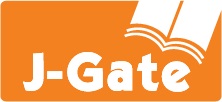Abstract
Background: Social Media usage is on the rise since its inception in the early 2000s. Though some aspects of Behavioral Addictions like Online gaming have been recognized as addictions, excessive social media usage requires more studies to validate the same. The study considers the General Pathological Internet Use aspect of the Cognitive Behavioural Model theory in its approach to deciphering Social Media Addiction.
Objective: This study aims to determine what percentage of the population studied is at a high risk of developing Social Media Addiction and analyzes the factors prevalent to Indian users, The shorter version of the Bergen Social Media Addiction Scale is used and the scale is validated.
Material and Methods: The objectives are achieved by using a questionnaire BSMAS scale, applying exploratory factor analysis to BSMAS, and validating the tool for the Indian social media users. The current study focused on India, with a sample of 747 respondents selected through convenience sampling. BSMAS short scale and Likert score, Exploratory Factor Analysis, and Confirmatory Factor Analysis were applied. Results and Conclusion: 18% of the sample was at risk of developing Social Media addiction. EFA reduced the six factors of BSMAS to three relevant factors viz., Salience, Mood Modifications/Tolerance, and Relapse explaining 37.4% of the total variance. Confirmatory Factor Analysis validated the scale for the Indian population. The Kaiser-Meyer-Olkin KMO measure of Sampling Adequacy is .925, the Internal reliability of the data is .89, which is highly favorable. Bartlett's test of Sphericity is the chi-square value 4034.47 /153 and p-value is less than .001, revealing that the sample was suitable for the EFA.
Keywords
Social Media Addiction; Bergen Social Media Addiction Scale; Behavioural Addiction; Factor Analysis, India
Recommended Citation
Arora, Shivani; Kumar, Manoj; and Piplani, Kaashvi
(2022)
"Social Media Addiction- Risk Of Addiction In India Measured Through Bergen Social Media Addiction Scale(BSMAS),"
Management Dynamics: Vol. 22:
No.
2, Article 5: 101-113
DOI: https://doi.org/10.57198/2583-4932.1308
Available at:
https://managementdynamics.researchcommons.org/journal/vol22/iss2/5





